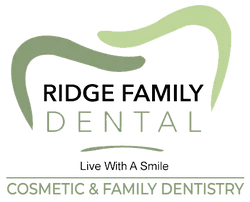Gum disease, also known as periodontal disease, is a common oral health issue. It affects a significant portion of the population. Unfortunately, many individuals remain unaware of its presence until it reaches an advanced stage. Early detection plays a crucial role in preventing severe damage to the gums and teeth. By understanding the signs and symptoms of gum disease, individuals can take proactive measures to maintain their oral health and prevent complications.

Signs and Symptoms
Healthy gums are firm, pale pink, and fit snugly around the teeth. In contrast, signs of gum disease include red, swollen gums that may bleed during brushing or flossing. Bleeding gums are often one of the first indicators of gum disease and should not be ignored. Persistent bad breath, also known as halitosis, is another common symptom. It may indicate the presence of bacteria and infection in the gums.
As the disease progresses, gums may begin to recede, exposing more of the tooth and making teeth appear longer. This can lead to increased sensitivity to hot or cold temperatures. In advanced stages, teeth may become loose or shift in position. These symptoms indicate significant damage to the supporting structures of the teeth. If any of these symptoms are present, it is important to consult a dentist promptly for evaluation and treatment.
Risk Factors
Several factors increase the risk of developing gum disease. Poor oral hygiene is the most significant risk factor. Neglecting to brush and floss regularly allows plaque to accumulate and harden into tartar. Regular dental visits are essential to remove tartar and prevent gum disease.
Smoking and tobacco use also greatly contribute to periodontal disease. Tobacco products hinder the healing of gum tissues and mask symptoms, delaying detection and treatment. Quitting smoking could significantly reduce the risk of gum disease and improve overall oral health.
Genetics can also play a role in the susceptibility to gum conditions. Some individuals may have a genetic predisposition that makes them more prone to developing gum problems. Additionally, certain medical conditions, such as diabetes, can increase the risk of disease. Diabetes affects the body’s ability to fight infection, making the gums more vulnerable. Hormonal changes, such as those occurring during pregnancy, can also impact gum health and increase sensitivity.
Prevention and Treatment
Practicing good oral hygiene is essential. Brush your teeth at least twice a day using fluoride toothpaste. Floss daily to remove plaque and food particles from between your teeth. Consider using mouthwash as part of your oral hygiene routine. Mouthwash can help reduce bacteria and freshen breath. Choose a product with the ADA Seal of Acceptance to ensure its effectiveness and safety. Regular dental check-ups are crucial for maintaining oral health. Professional cleanings remove tartar and help prevent disease.
Gingivitis, is often reversible with improved oral care. Dentists may recommend more frequent cleanings and personalized oral hygiene instructions. Advanced cases of gum disease may require professional treatment. Scaling and root planing are common procedures to remove tartar and bacteria from below the gum line. In some cases, dentists may prescribe antibiotics to treat infection and inflammation. In severe cases of disease, surgical intervention may be necessary.
When to See a Dentist
Regular dental visits are essential for maintaining oral health and preventing gum disease. Schedule appointments every six months for professional cleanings and check-ups. If you notice any symptoms of periodontal disease, such as bleeding gums or persistent bad breath, consult a dentist promptly. Early detection and treatment could prevent the progression of the disease and improve outcomes.
Dentists can provide personalized advice and treatment plans based on individual risk factors and needs. They can assess the health of your gums and recommend appropriate treatments to address any issues. Do not ignore symptoms of gum disease, as early intervention could prevent more serious complications.
Gum Disease Treatment in Lyndhurst, NJ
For more information and comprehensive dental care, visit Ridge Family Dental. Our team of professionals provides personalized treatment plans to meet your specific needs. If you notice signs of periodontal disease, don’t wait to seek treatment. Contact our office today to schedule a consultation and learn more about your treatment options.
